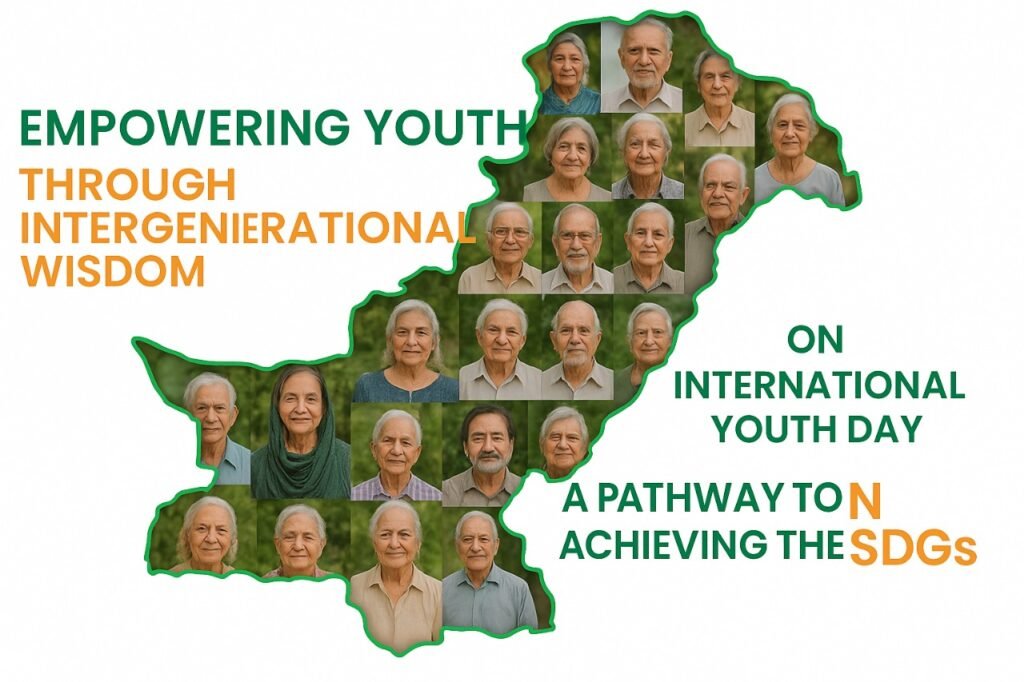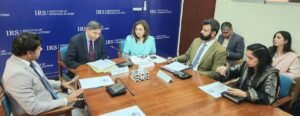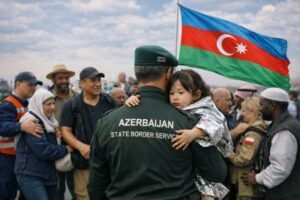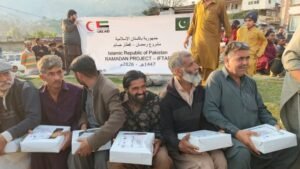
Islamabad : As the world celebrates International Youth Day on August 12, we are reminded that the path toward achieving the 2030 Agenda for Sustainable Development Goals (SDGs) is not a solo journey for the young—it is a shared mission between generations. In Pakistan, older people are playing a vital role in guiding, mentoring, and supporting youth to grow, lead, and thrive.
A Changing Demographic Picture
Pakistan is the fifth most populous country in the world. According to the Pakistan Bureau of Statistics (PBS) 2024 census, there are 13.5 million people aged 60 years and above, representing 5.62% of the total population. By 2050, this share is projected to more than double to 12%, with around 40 million older people (WHO, 2024).
Provincially, the highest proportions of older people are in Islamabad (6.9%) and Punjab (6.3%), followed by Khyber Pakhtunkhwa (5.1%), Sindh (4.9%), and Balochistan (3.4%).
The Role of Older People in Youth Empowerment
Older people in Pakistan contribute far more than their share of the population might suggest. Many continue working in agriculture, small trades, and livestock farming, bolstering rural economies and ensuring food security. They also act as caretakers, family leaders, and cultural knowledge keepers, strengthening social cohesion and guiding younger generations.
Their mentorship—whether in trades, education, or community leadership—transfers practical skills, ethical values, and lived wisdom. This intergenerational exchange directly advances SDG 4 (Quality Education), SDG 8 (Decent Work and Economic Growth), and SDG 16 (Peace, Justice, and Strong Institutions).
Challenges Older People Face—and Why It Matters for Youth
Despite their contributions, older people face systemic challenges that also affect the youth who rely on them:
• Health: High rates of non-communicable diseases such as diabetes, hypertension, and arthritis (Kazmi et al., 2022).
• Mental health: Depression and social isolation are rising, particularly in urban areas where nuclear families replace traditional extended households.
• Climate vulnerability: The 2022 floods wiped out over 80% of crops in Sindh, devastating older rural farmers’ livelihoods (Naz, 2022).
These hardships weaken their ability to provide support, making it essential to address them if we want empowered youth.
Legal and Policy Framework
Pakistan has passed senior citizens acts in several provinces and territories—Punjab (2024 draft), Islamabad (2021), Sindh (amended 2023), Gilgit-Baltistan (2022), Khyber Pakhtunkhwa (2014), and Balochistan (2017)—but weak implementation has left many older people without promised benefits like healthcare concessions, transport discounts, or income support.
Strengthening these protections is not only about dignity for older people—it’s also an investment in youth, who benefit from healthier, more engaged elders.
A Call to Action
Empowering youth requires more than innovation and opportunity—it demands drawing on the strength and wisdom of older generations. In Pakistan, the 13.5 million people aged 60+ are not passive dependents. They are active contributors, mentors, and partners in achieving the SDGs.
On this International Youth Day, let us champion policies and programs that connect the generations, so we can build a future where no one is left behind, and every generation thrives together.
Author : Muhammad Bilal
Email :imbilalsh@gmail.com








